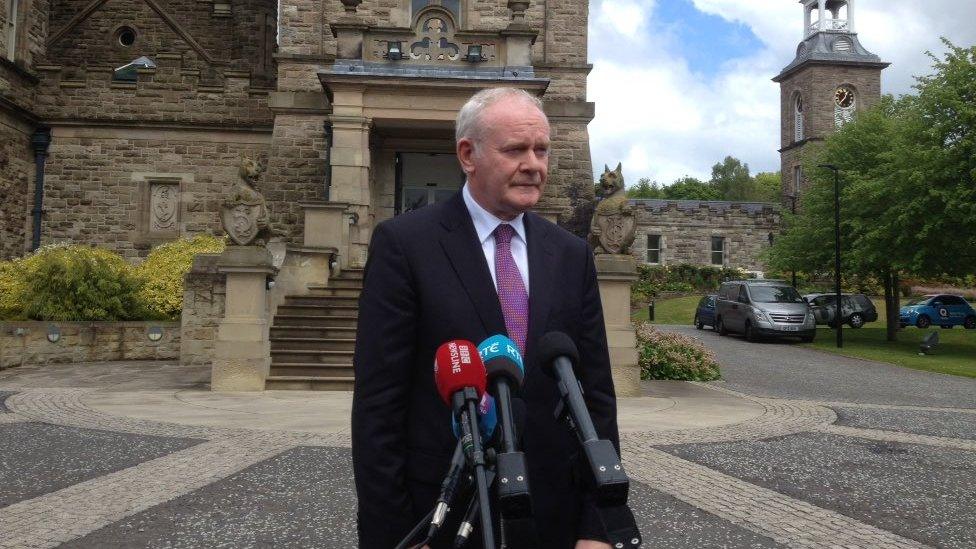NI Executive: Alliance Party ruling council endorses justice ministry decision
- Published
In May 2016 Mr Ford said his party would not take up the justice post again
Alliance's ruling council has endorsed the party's decision not to take up the justice ministry.
The announcement was made following a "packed" meeting of the party council on Thursday night.
Alliance leader, David Ford, previously said he was not in a position to recommend his party take up the role.
It follows the SDLP's decision to join the Ulster Unionist Party in entering into opposition at Stormont.
Mr Ford said "this isn't a high-stake poker game" but an issue of principle for his party.
Speaking on BBC's The View programme, the party's deputy leader, Naomi Long, said: "As things stand, at this point in time, it simply would not be possible for us to go into any executive."
She said this decision had been "overwhelmingly endorsed" at a meeting of the party's ruling council on Thursday night.

Analysis - BBC News NI's political editor Mark Devenport
What is clear is that the ranks of the opposition at Stormont are growing.
But the exact shape of the future government remains unclear.
It will be dominated by the DUP and Sinn Féin, but who could be justice minister?
Alliance seemed the natural choice but there is no obvious resolution to their stand-off with the two big parties over reforming Stormont.
If Alliance cannot cut a deal with the DUP and Sinn Féin then the Greens appear an even less likely partner.
However, the position of the independent unionist Claire Sugden is intriguing as is the possibility that the DUP and Sinn Fein could between themselves somehow solve the justice conundrum.

Earlier on Thursday, the first minister and deputy first minister accused the SDLP of being "dishonest" during Stormont's programme for government negotiations.
It followed the SDLP leader Colum Eastwood saying he was "very disappointed" over the talks.
DUP leader and Northern Ireland First Minister, Arlene Foster, said the smaller parties were searching for "relevance" following the election on 5 May.
The various parties have been meeting at Stormont Castle in a series of talks that could decide the fate of the next Northern Ireland Executive.
An Alliance Party delegation left Stormont Castle after a meeting with Mrs Foster and Mr McGuinness that only lasted 10 minutes.
The Alliance leader, Mr Ford, said the party's recommendations, which "would have moved Northern Ireland forward and created a better society for all", were "rejected by the DUP and Sinn Féin".
Earlier, there were talks with the Green Party and independent unionist MLA, Claire Sugden, about the justice ministry.
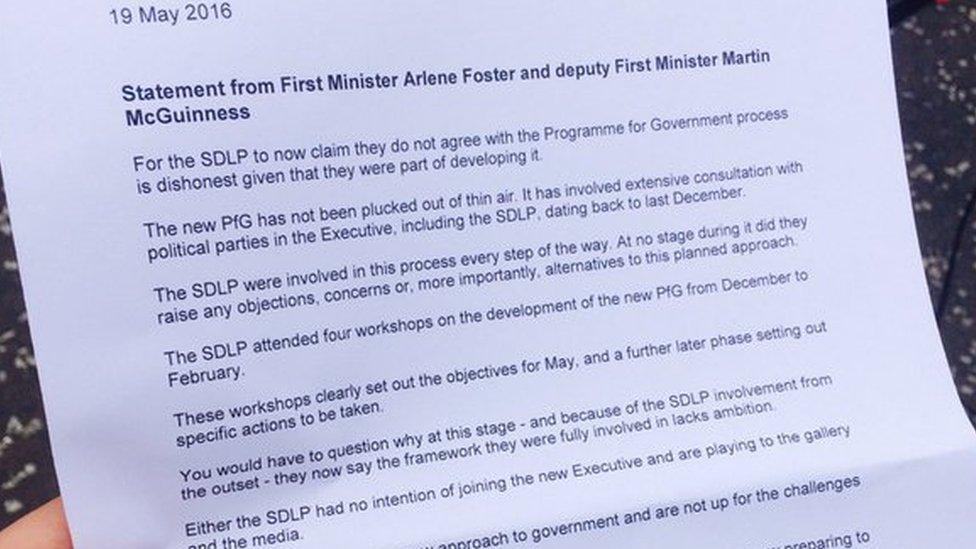
The First and Deputy First Ministers' statement said the Programme for Government had 'not been plucked out of thin air'
Green Party leader Steve Agnew said that he was invited to the meeting with the first minister and deputy first ministers at short notice and was asked what issues he would want movement on before taking the job.
The party said taking on the role would be "problematic" for them.
Mr Agnew said the meeting was "worthwhile", but added "we would need more progress on our issues before we could recommend going into government to our party members".
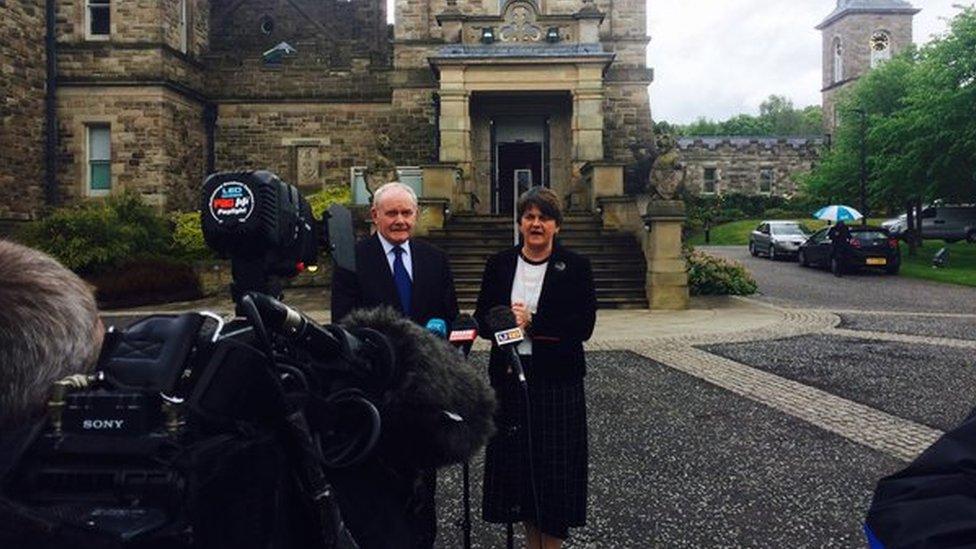
The ministers also met Green Party leader Steven Agnew and independent unionist MLA Claire Sugden
After the meeting with the SDLP, the first minister and deputy first minister issued a statement that said: "For the SDLP to now claim they do not agree with the programme for government process is dishonest given that they were part of developing it.
"The new programme for government has not been plucked out of thin air."
The statement added: "The SDLP were involved in the process every step of the way.
"At no stage during it did they raise any objections, concerns or, more importantly, alternatives to this planned approach."
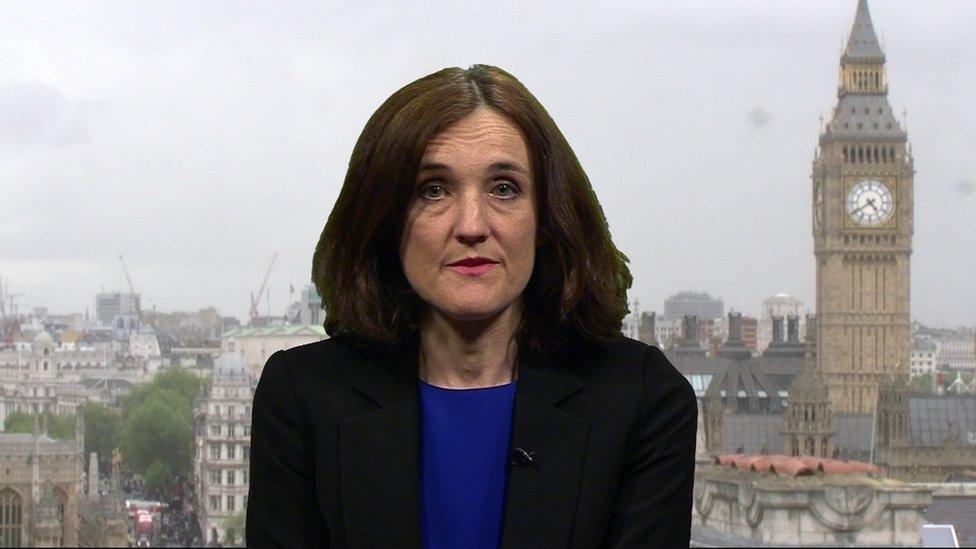
Theresa Villiers has said that another election could be held if a justice minister is not appointed
Northern Ireland Secretary Theresa Villiers has warned that unless a justice minister is appointed by next Wednesday fresh assembly elections will have to be held.
The majority of the posts in the executive will be filled by ministers from the Democratic Unionist Party (DUP) and Sinn Féin.
In the May assembly election, the DUP maintained the 38 seats it held in the last assembly, while Sinn Féin lost one and now holds 28.
The Ulster Unionists have 16 seats, while the SDLP have 12.
The Alliance Party secured eight seats during the election, meaning it does not have enough seats to automatically qualify for a ministerial department.
- Published19 May 2016
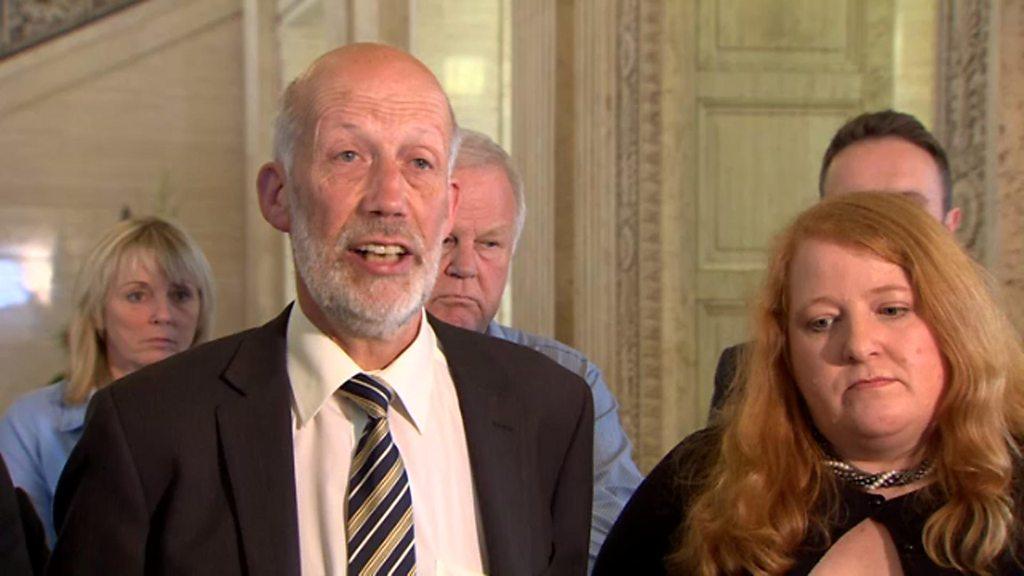
- Published19 May 2016
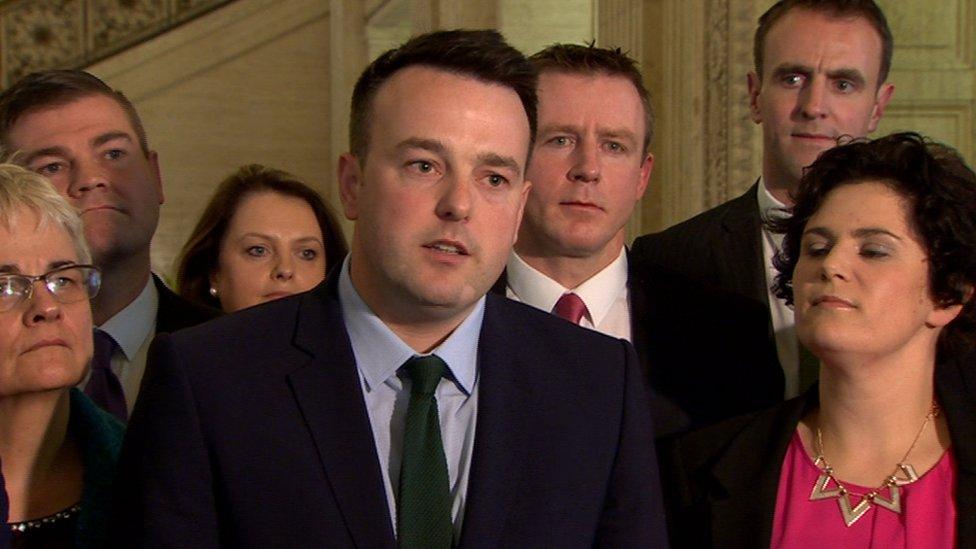
- Published18 May 2016
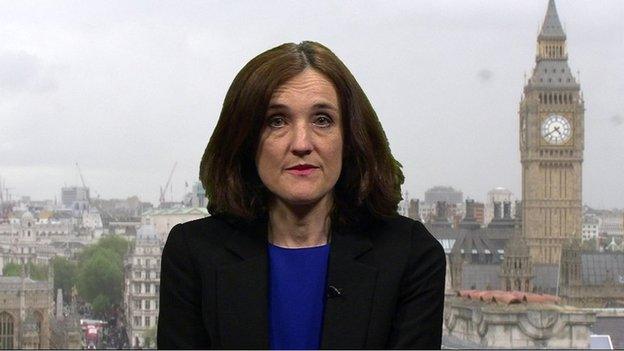
- Published18 May 2016
